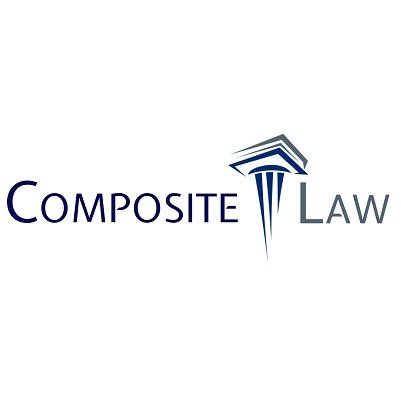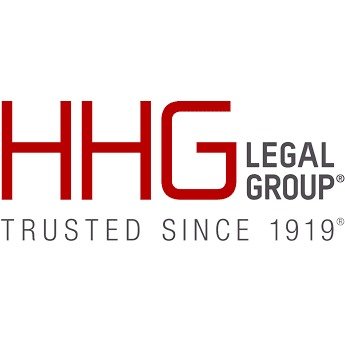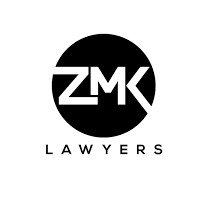Best Sanctions & Export Controls Lawyers in Australia
Share your needs with us, get contacted by law firms.
Free. Takes 2 min.
Or refine your search by selecting a city:
List of the best lawyers in Australia
About Sanctions & Export Controls Law in Australia
Sanctions and export controls are important components of Australia’s national and international legal framework. These laws regulate the transfer of goods, technologies, services, and funds across Australian borders, particularly where there may be concerns about international security, human rights, the proliferation of weapons, or compliance with United Nations (UN) mandates. Australia’s sanctions regime is primarily governed by federal legislation and is overseen by several government agencies to ensure that Australian individuals and businesses act in accordance with the country's international obligations.
Why You May Need a Lawyer
Complying with sanctions and export controls laws can be complex, and legal advice is often crucial. You may need a lawyer if:
- You are involved in exporting goods, services, or technology from Australia, especially to countries subject to sanctions
- You suspect or have been notified that you have breached sanctions or export controls legislation
- You are facing penalties, investigations, or enforcement action from authorities
- You are unsure whether your trade activities require a permit or license
- You are negotiating contracts with overseas entities in sensitive sectors
- Your business is involved in dual-use goods (products with both civilian and military applications)
- You need to develop internal compliance systems to mitigate risk
- Your business deals with cryptocurrency or financial transactions that may raise red flags
- You require due diligence regarding foreign investments or new trading partners
- You want to apply for exemptions, permits, or review of government decisions under the sanctions regime
Local Laws Overview
Australia’s sanctions and export controls are governed by several key pieces of legislation, mainly the Charter of the United Nations Act 1945 and the Autonomous Sanctions Act 2011. These laws enable Australia to impose both UN Security Council-mandated sanctions and autonomous (Australian-initiated) sanctions. Export controls are administered through the Defence Trade Controls Act 2012, the Customs Act 1901, and related regulations.
Australian regulations cover:
- Prohibition or restriction of the supply, sale, or export of certain goods and services to targeted countries, entities, or individuals
- Prohibition on making financial transactions with sanctioned entities
- Licensing regimes for controlled goods, including military and dual-use items
- Restrictions on the provision of technical advice, training, and related services
- Civil and criminal penalties for breaches, which can include significant fines and imprisonment
The Department of Foreign Affairs and Trade (DFAT) administers sanctions, while export controls are enforced by agencies like Defence Export Controls (DEC) and the Australian Border Force.
Frequently Asked Questions
What are sanctions?
Sanctions are legal restrictions, often at the international level, designed to influence the behavior of countries, organizations, or individuals. In Australia, they may include financial, trade, or travel restrictions.
What are export controls?
Export controls are laws that regulate the transfer of goods, software, technology, and services out of Australia, often to prevent the spread of weapons or sensitive technologies.
Which countries are subject to Australian sanctions?
Countries like Iran, North Korea, Russia, Syria, and others have been subject to Australian sanctions. The exact list changes as international situations evolve.
What goods and services are controlled under export laws?
Controlled goods include military equipment, dual-use technology, weapons, and some chemicals or biological agents. Certain software and communications technologies may also be regulated.
Do I need a permit to export controlled items?
Yes. If your items or services are controlled, you must apply for and receive a permit or license before exporting them from Australia.
What are the consequences of breaching sanctions or export controls?
Breaches can result in heavy fines, criminal prosecution, imprisonment, and reputational damage to businesses and individuals.
How do I know if my business activities are affected by sanctions?
Review the DFAT Consolidated List and the Defence Export Controls (DEC) guidelines. Legal advice can help clarify obligations based on your specific circumstances.
Is providing professional or technical advice covered by these laws?
Yes. Providing services, training, or even certain technical advice can fall under the scope of sanctions and export controls and may require authorization.
Can I apply for an exemption or a review of a sanctions decision?
In certain circumstances, exemptions or reviews are possible. Legal representation is recommended to guide you through the application or appeals process.
Where can I find more information on current sanctions and controls?
Australian government websites regularly update sanctions information. DFAT and Defence Export Controls are key sources.
Additional Resources
Here are some Australian resources and organizations that may assist with information or support:
- Department of Foreign Affairs and Trade (DFAT) - administers sanctions and maintains the Consolidated List of sanctioned entities and individuals
- Defence Export Controls (DEC) - provides guidance and licensing for controlled goods, technology, and services
- Australian Border Force - enforces customs and border-related export controls
- Austrade - offers trade and export advice to Australian businesses
- Law Society of your state or territory - can assist in finding a qualified sanctions and export controls lawyer
Next Steps
If you believe you are affected by sanctions or export controls laws in Australia, consider the following next steps:
- Clearly outline your business activities and identify any cross-border transactions, exports, or financial dealings
- Check the DFAT Consolidated List and the Defence Export Controls portal for preliminary information
- Consult with a qualified lawyer experienced in sanctions and export controls for a risk assessment and tailored legal advice
- Prepare and organize all relevant documentation before your consultation, including contracts, correspondence, and compliance policies
- If advised by counsel, apply for the necessary permits or exemptions as required
- Implement robust internal compliance systems to prevent future breaches
Dealing with sanctions and export controls is a serious and often high-stakes area of law. Timely legal advice can help protect your interests, ensure compliance, and minimize the risk of penalties.
Lawzana helps you find the best lawyers and law firms in Australia through a curated and pre-screened list of qualified legal professionals. Our platform offers rankings and detailed profiles of attorneys and law firms, allowing you to compare based on practice areas, including Sanctions & Export Controls, experience, and client feedback.
Each profile includes a description of the firm's areas of practice, client reviews, team members and partners, year of establishment, spoken languages, office locations, contact information, social media presence, and any published articles or resources. Most firms on our platform speak English and are experienced in both local and international legal matters.
Get a quote from top-rated law firms in Australia — quickly, securely, and without unnecessary hassle.
Disclaimer:
The information provided on this page is for general informational purposes only and does not constitute legal advice. While we strive to ensure the accuracy and relevance of the content, legal information may change over time, and interpretations of the law can vary. You should always consult with a qualified legal professional for advice specific to your situation.
We disclaim all liability for actions taken or not taken based on the content of this page. If you believe any information is incorrect or outdated, please contact us, and we will review and update it where appropriate.
Browse sanctions & export controls law firms by city in Australia
Refine your search by selecting a city.

















